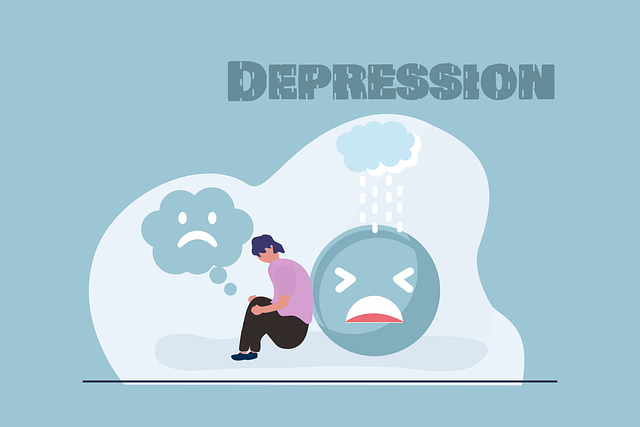Mental wellness journaling is gaining popularity in Denver as a self-care practice for managing chronic illnesses and reducing stigma. By recording thoughts and experiences, individuals enhance emotional regulation, identify triggers, cultivate gratitude, and adopt healthy coping strategies. The Denver Chronic Illness Therapy Approach emphasizes structured yet personalized journaling to improve emotional understanding and resilience, track mood patterns, and develop self-care routines. Regular reflection boosts confidence and promotes progress monitoring for both patients and mental health professionals.
“Unwind and reconnect with yourself through the transformative power of mental wellness journaling, a practice gaining momentum in the field of self-care. This article explores how this simple yet profound exercise can be a game-changer for your emotional well-being.
We’ll delve into the Denver Chronic Illness Therapy approach, renowned for its holistic techniques to enhance mental clarity and resilience. Discover effective strategies and tips to harness the therapeutic benefits of journaling, offering a quiet sanctuary within your daily routine.”
- Understanding Mental Wellness Journaling: A Powerful Tool for Self-Care
- The Denver Chronic Illness Therapy Approach to Journaling
- Effective Techniques and Tips for a Therapeutic Journaling Practice
Understanding Mental Wellness Journaling: A Powerful Tool for Self-Care

Mental wellness journaling is a powerful self-care tool that has gained significant traction in recent years, especially in urban centers like Denver, known for its chronic illness therapy services. It involves documenting thoughts, feelings, and experiences in a structured manner to promote emotional regulation and gain valuable insights into one’s mental health. By putting pen to paper (or fingers to keyboard), individuals can process their emotions, reflect on challenging situations, and track personal growth—all of which are essential components of maintaining good mental wellness.
This practice offers a safe and private space for expression, allowing people to explore their thoughts without judgment. It’s particularly beneficial for those navigating mental illness or dealing with stigma reduction efforts. Regular journaling can aid in identifying triggers, cultivating gratitude, and implementing effective coping strategies. Moreover, it serves as a valuable risk management planning tool for mental health professionals, enabling them to monitor client progress and tailor interventions accordingly.
The Denver Chronic Illness Therapy Approach to Journaling

The Denver Chronic Illness Therapy Approach to Journaling leverages the power of self-reflection and emotional expression as key components in managing chronic conditions and enhancing mental wellness. This therapeutic method encourages individuals to explore their thoughts, feelings, and experiences through structured yet personalized journaling exercises. By dedicating time each day to record their journey, patients develop a deeper understanding of their emotions, fostering better emotional regulation.
The process involves setting specific goals, such as tracking mood patterns, identifying triggers, or documenting coping strategies. Through regular reflection, individuals can identify trends, gain insights into their condition’s impact on their lives, and cultivate resilience. Moreover, the act of putting pen to paper facilitates a sense of agency, allowing patients to actively participate in their self-care routine development for better mental health. This practice also subtly contributes to building confidence, as individuals witness their progress and accomplishments documented over time.
Effective Techniques and Tips for a Therapeutic Journaling Practice

Engaging in a regular journaling practice can be a powerful tool for navigating life’s challenges and cultivating emotional resilience, especially for those managing chronic illnesses in Denver or beyond. Effective therapeutic journaling goes beyond simply writing down thoughts; it involves intentional techniques to promote mental health awareness and facilitate emotional healing processes.
To make the most of your journaling journey, consider incorporating reflective prompts that encourage self-exploration. Start with descriptive details about your feelings, focusing on sensory experiences related to your mood. For instance, “My heart feels heavy like a stone in my chest, and the room spins slightly as I sit here.” This practice helps identify underlying emotions tied to specific situations. Additionally, set aside dedicated time for free-writing, allowing thoughts to flow without judgment. Mental wellness podcast series production often highlights the therapeutic value of this unrestrained expression. Remember, the goal is not perfection but self-discovery and a deeper understanding of your emotional landscape.
Mental wellness journaling, as supported by the Denver Chronic Illness Therapy approach, is a powerful self-care practice that can significantly enhance one’s mental health. By integrating effective techniques and tips outlined in this article, individuals can harness their thoughts and emotions through reflective writing, fostering personal growth and resilience. Incorporating these practices into daily routines may prove to be transformative, offering a holistic approach to managing mental wellness.














